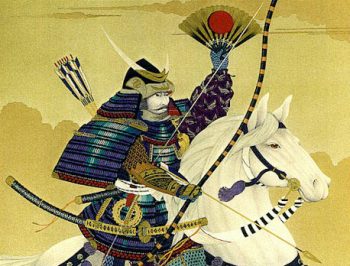A Christian Century
By Fr Jacquel MEP
 The evangelisation of Japan begun in 1549 by St Francis Xavier and his companions was followed by a wonderful blooming of the Church. This was however, brutally interrupted: the new power of the Shoguns, which ended a divided Japan, ordered all the missionaries to be expelled, which left the communities without any priests. Then Japan closed itself off from any relations with the outside world, other than a strictly regulated trade with the Dutch, on the artificial island of Deshima, in Nagasaki bay. Henceforth, no-one could leave Japan or enter it without risking death.
The evangelisation of Japan begun in 1549 by St Francis Xavier and his companions was followed by a wonderful blooming of the Church. This was however, brutally interrupted: the new power of the Shoguns, which ended a divided Japan, ordered all the missionaries to be expelled, which left the communities without any priests. Then Japan closed itself off from any relations with the outside world, other than a strictly regulated trade with the Dutch, on the artificial island of Deshima, in Nagasaki bay. Henceforth, no-one could leave Japan or enter it without risking death.
In 1638, every trace of Christian life seemed to have been wiped out after the massacre of 37 000 Christians crammed into the fortified town of Shimabara: the wretched situation to which they had been reduced because of their faith had driven them to rebel. The holocaust of Shimabara had been preceded by other bloody episodes: among them those of 1587 (26 martyrs canonised in 1862 by Pope Pius IX) and in 1614 (52 martyrs, canonised by Pius IX in 1867) which had taken place in and around Nagasaki.
Japan’s isolation ended little by little from 1852, under pressure from Western powers. From 1854 the Edo (later named Tokyo) government entered into commercial relations with, successively, the USA, Britain and Russia. In 1858 a treaty with France opened Yokohama, Hakodate and Nagasaki to French trade. These three ports were directly administered – under the names of imperial towns – by the government in Tokyo, which appointed governors to them. In these concessions, foreigners got permission to erect buildings for their own exclusive use in religious worship, Christianity remaining banned for any Japanese. But gunboat diplomacy and unequal treaties inevitably led to tensions; people who lived in the concessions had every reason to fear meeting sabre-bearing men – their safety was not entirely guaranteed. Tokyo remained the political capital of Japan, the residence of the Shoguns who, since the seventeenth century, had held real military and civil power. The Emperor, who only retained power to confer honorific titles and carried out priestly tasks, still lived in Kyoto. He did not move to Tokyo until 1868. Translated by Fr Brian Quin sm
 Entries(RSS)
Entries(RSS)